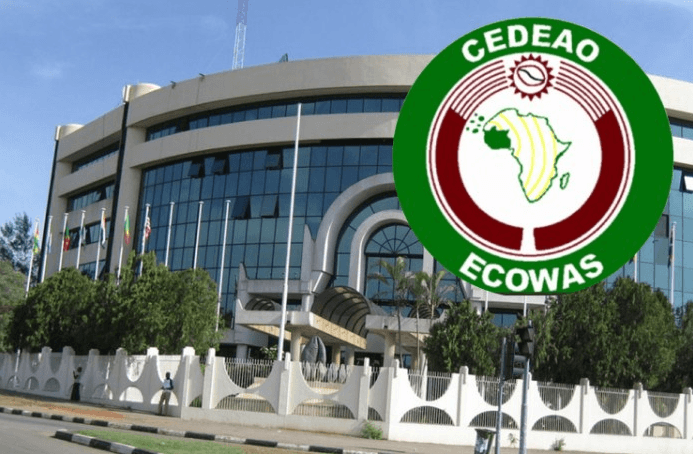The Economic and Community of West African States (ECOWAS) on Monday said it has eliminated over 95% of trade barriers along borders for member states under the ECOWAS Trade Liberalization Scheme, ETLS.
This was as it said that Nigeria alone accounts for 60 to 70 per cent of products under the scheme.
Head of ECOWAS National Unit, Ministry of Foreign Affairs, Joseph Oyi disclosed this during a consultative workshop organized by the ECOWAS Post 2020 vision held in Kano State.
Oyi represented by Tajuddeen Epo further reeled out other achievements by the commission to include facilitation of peaceful and democratic change of government in seven countries including Nigeria.
According to him, “positive developments in several West African Countries, including continued efforts being made to carry out political, constitutional and security sector reforms to improve good governance and democracy. The region facilitated peaceful and democratic change of government in Gambia, Liberia, Sierra Leone, Nigeria, Mali, Togo and Senegal.
“Under the ECOWAS Trade Liberalization Scheme, ETLS, the region has eliminated over 95% of trade barriers along borders of member states. Presently, Nigeria has over 2,400 companies with over 6,900 products under the scheme. Nigeria alone accounts for 60 to 70 per cent of products under the scheme.
“Accordingly, the goal of this workshop is to articulate the views of various stakeholders on impact of ECOWAS Vision n 2020, as well as the expectations of the people of Nigeria, with regards to the formulations of the ECOWAS Vision 2050 document.
“The objective of this workshop is to collectively assess the ECOWAS Vision 2020 and to ensure that the ECOWAS Post 2020 vision reflects Nigeria’s national interest as well as regional aspiration.
“The transformation of the ECOWAS from “ECOWAS of State to ECOWAS of the people” is non-negotiable. Consequently, the emphasis is directed towards regional projects that will have direct impacts on the people of the community,” Oyi said.
Earlier in his opening remarks, Governor Abdullahi Umar Ganduje said the workshop would play a vital role in fine-tuning modalities of moving West African nations forward.
Ganduje represented by the Permanent Secretary cabinet office, Musa Yahaya Bichi said his administration had initiated a lot of developmental policies and infrastructure geared towards improving the well being of the general populace.
He said some of the developmental projects include free and compulsory education at primary and secondary schools levels, enhance security tactics through modern ICT technology, provide infrastructural facilities for improvement of Health care service delivery among others.
